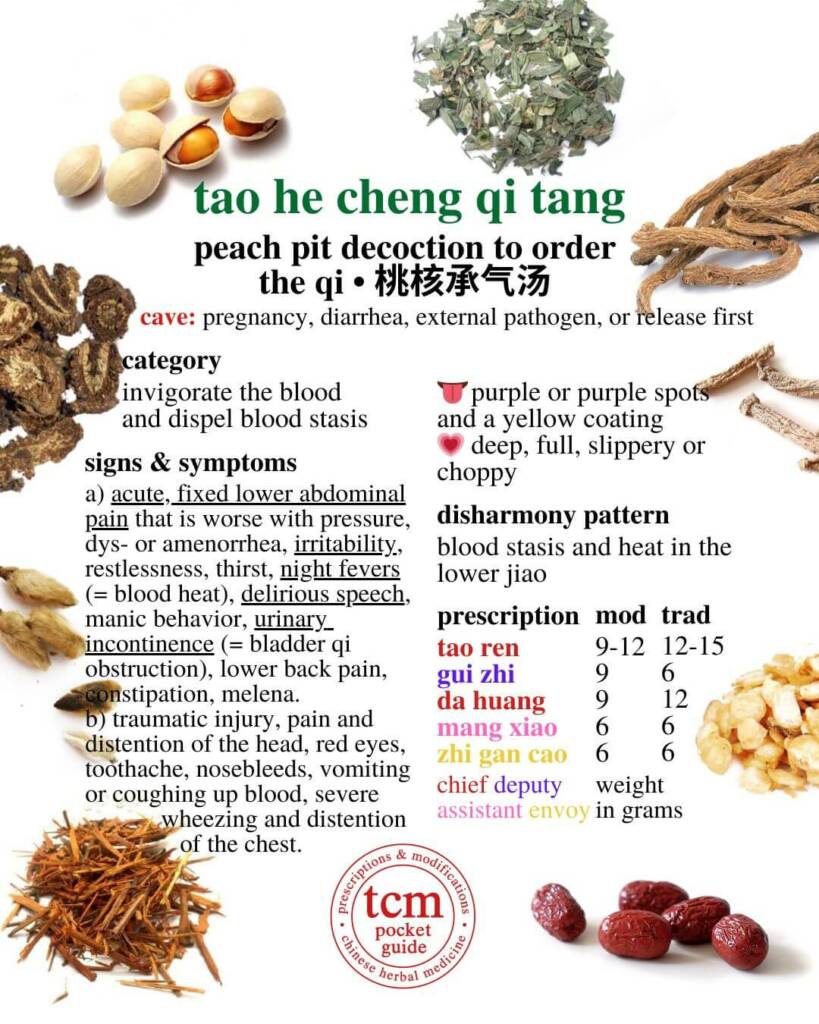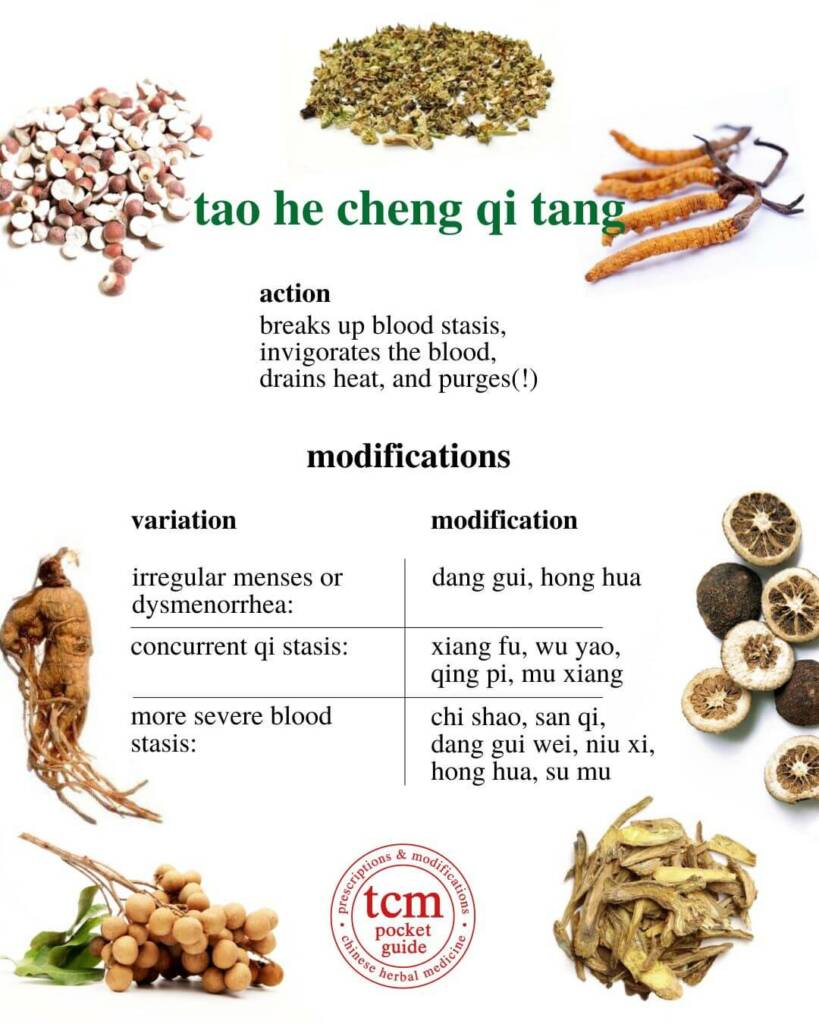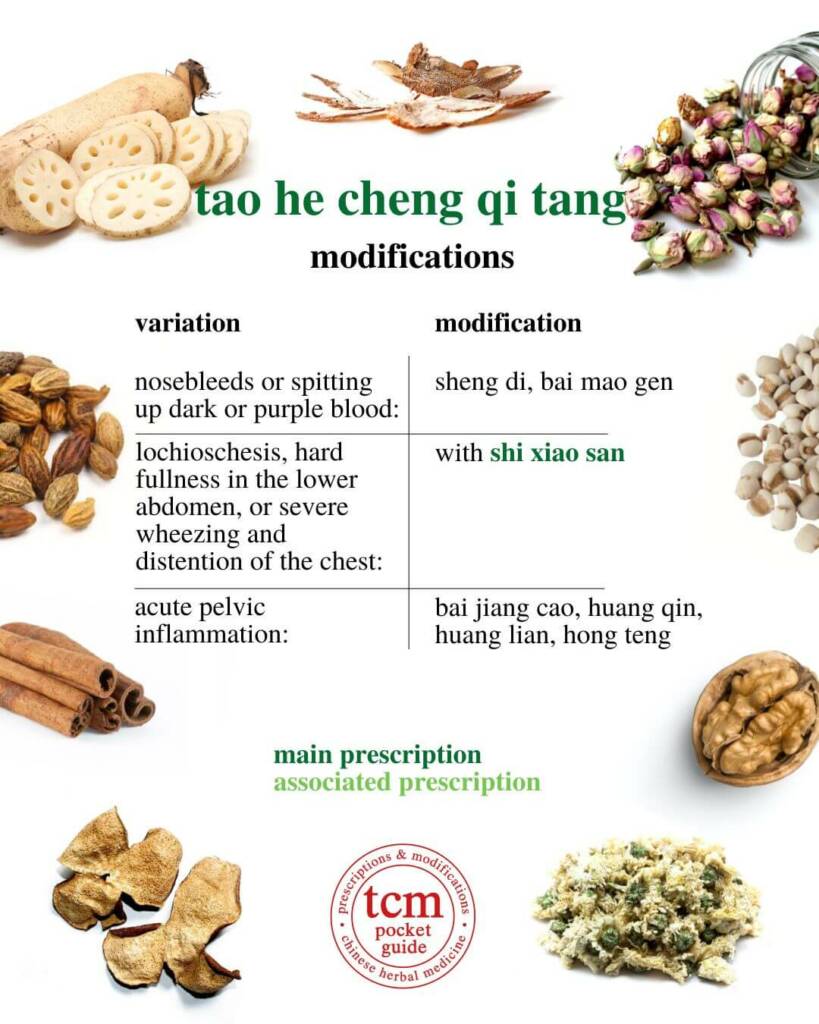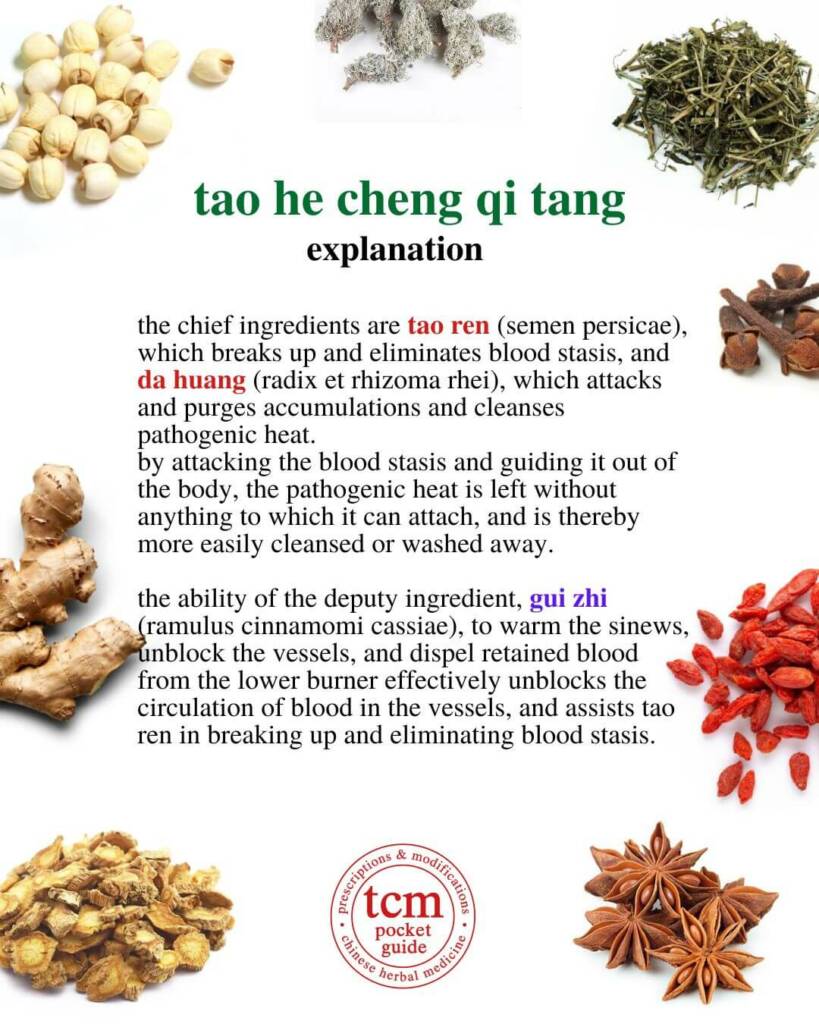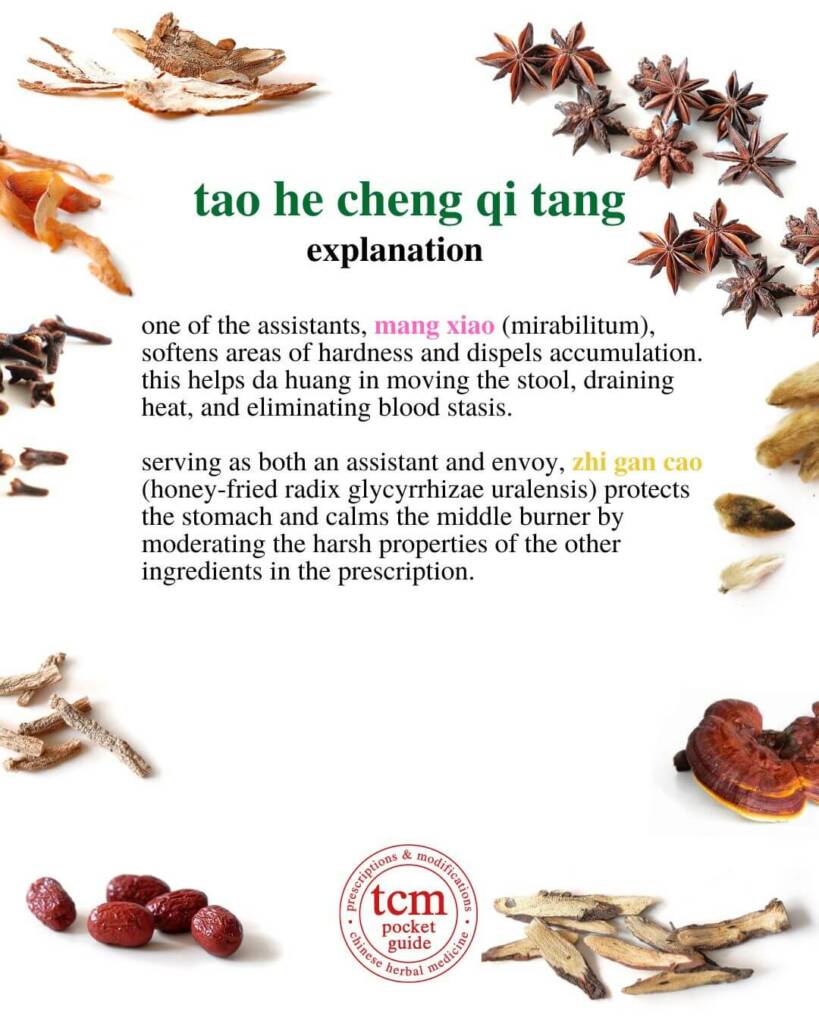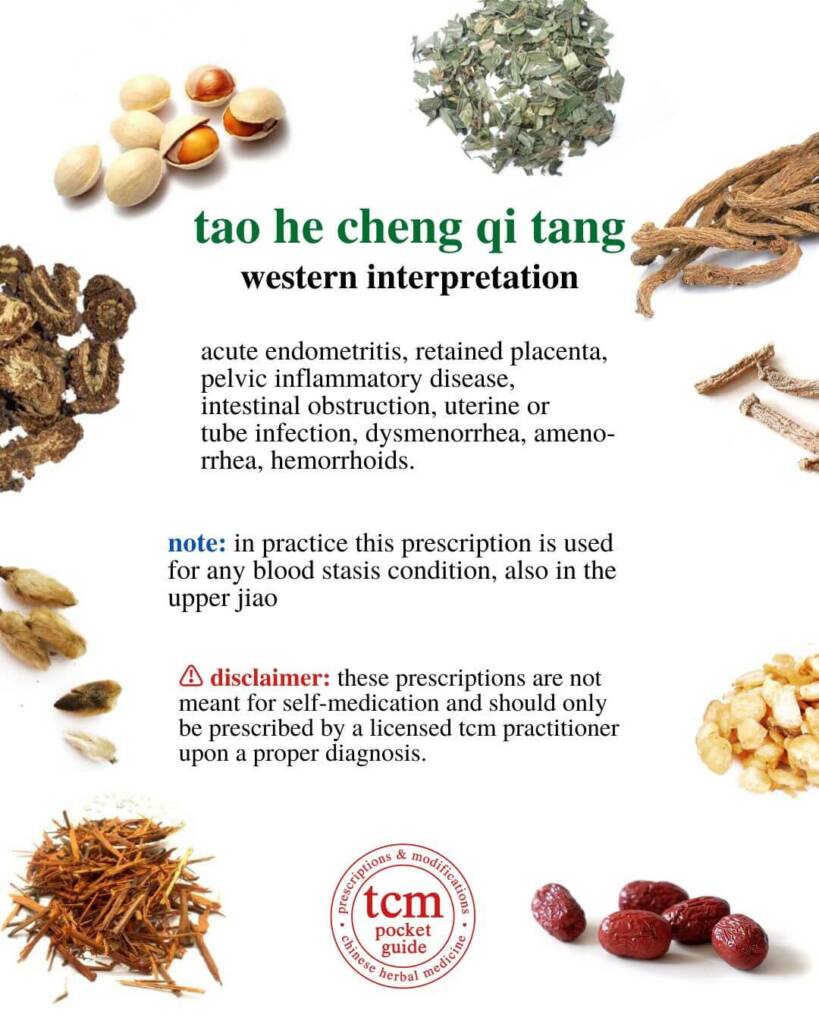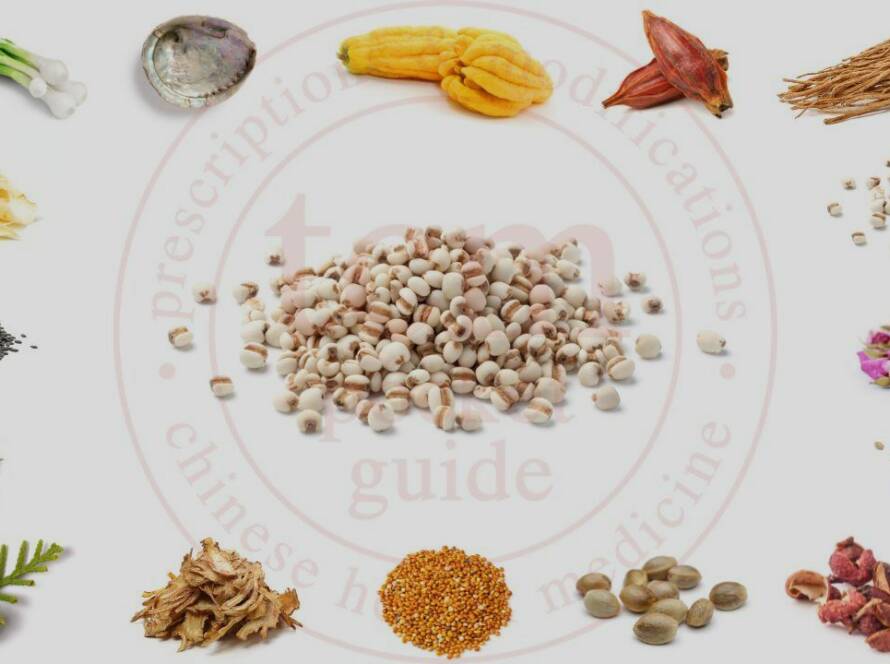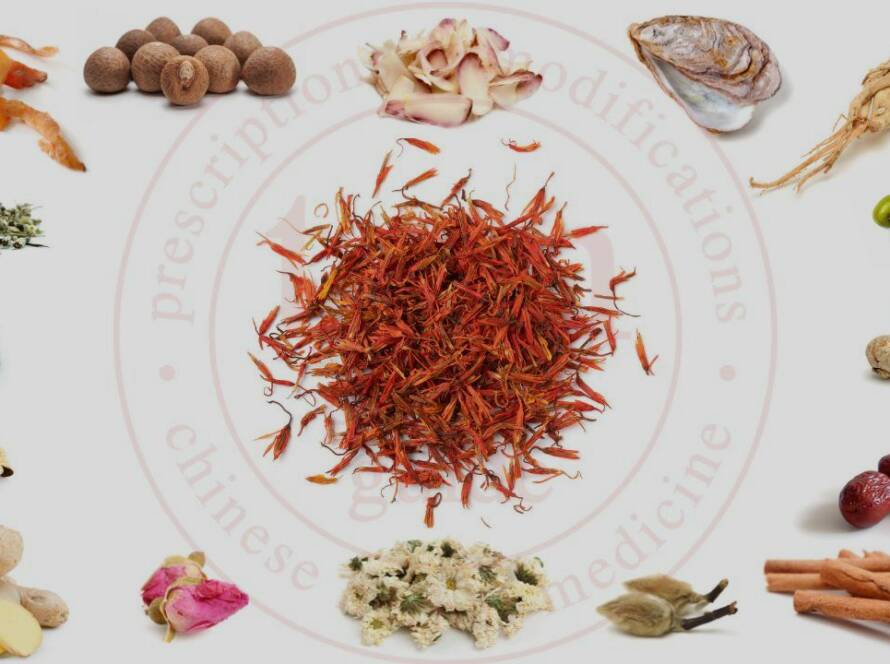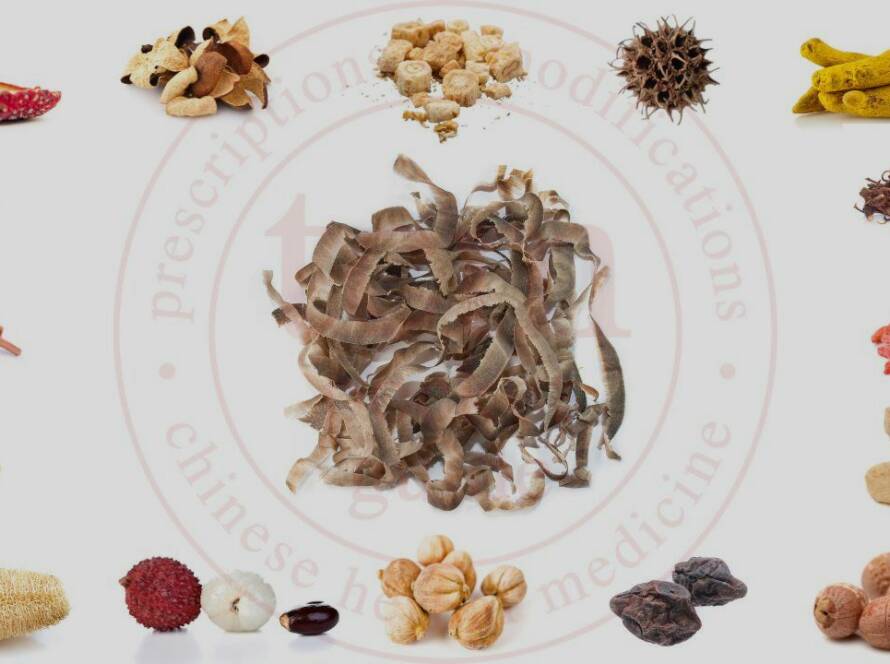táo hé chéng qì tāng is used for patterns with
blood stasis and heat in the lower jiao, yang ming heat with blood stagnation, traumatic injury.
symptoms indicating the use of táo hé chéng qì tāng
acute lower abdominal pain, incontinence of urine, night fevers, delirious speech, irritability, restlessness, thirst, maybe mania (severe), dysmenorrhea, amenorrhea, irregular menstruation, lochioschesis, constipation, hard stools, dark red complexion, headache, vertigo, tinnitus, insomnia, palpitations, frequent urination, emotional instability, chills in the waist and feet, afternoon fever, tremors, excruciating abdominal pain with cold, black stool, may be chills and fever, hemoptysis, hematuria, red eyes, pain and distention of the head, toothache, severe wheezing, distention of the chest.
western interpretation of táo hé chéng qì tāng
acute endometritis, retained placenta, pelvic inflammatory disease, intestinal obstruction, uterine or tube infection, dysmenorrhea, amenorrhea, hemorrhoids.
explanation of the mechanism
this is blood buildup (xi xue) in the lower jiao which is caused by the accumulation of blood stasis and heat. the source text attributes this condition to the transmission of an externally-contracted pathogenic influence into the lower jiao.
the static blood and heat obstruct the lower jiao and cause acute lower abdominal pain. the buildup of blood disturbs the lower jiao and disrupts the normal function of the bladder qi such that urine is not properly stored, but becomes incontinent. because the heat is in the blood level, but not the qi level, the feverishness occurs at night.
the heart rules the blood and is the organ from which the clarity of spirit emanates. here the retained heat rises and disturbs the spirit, producing abnormal and chaotic manifestations of the spirit such as delirious speech, irritability, restlessness, and thirst, or in more severe cases, manic behavior.
moreover, the accumulation and stasis of blood in the lower abdomen inhibits blood circulation and causes amenorrhea or dysnienorrhea in women.
(bensky & barolet)

created with love in switzerland 🇨🇭
feel free to share this content:


